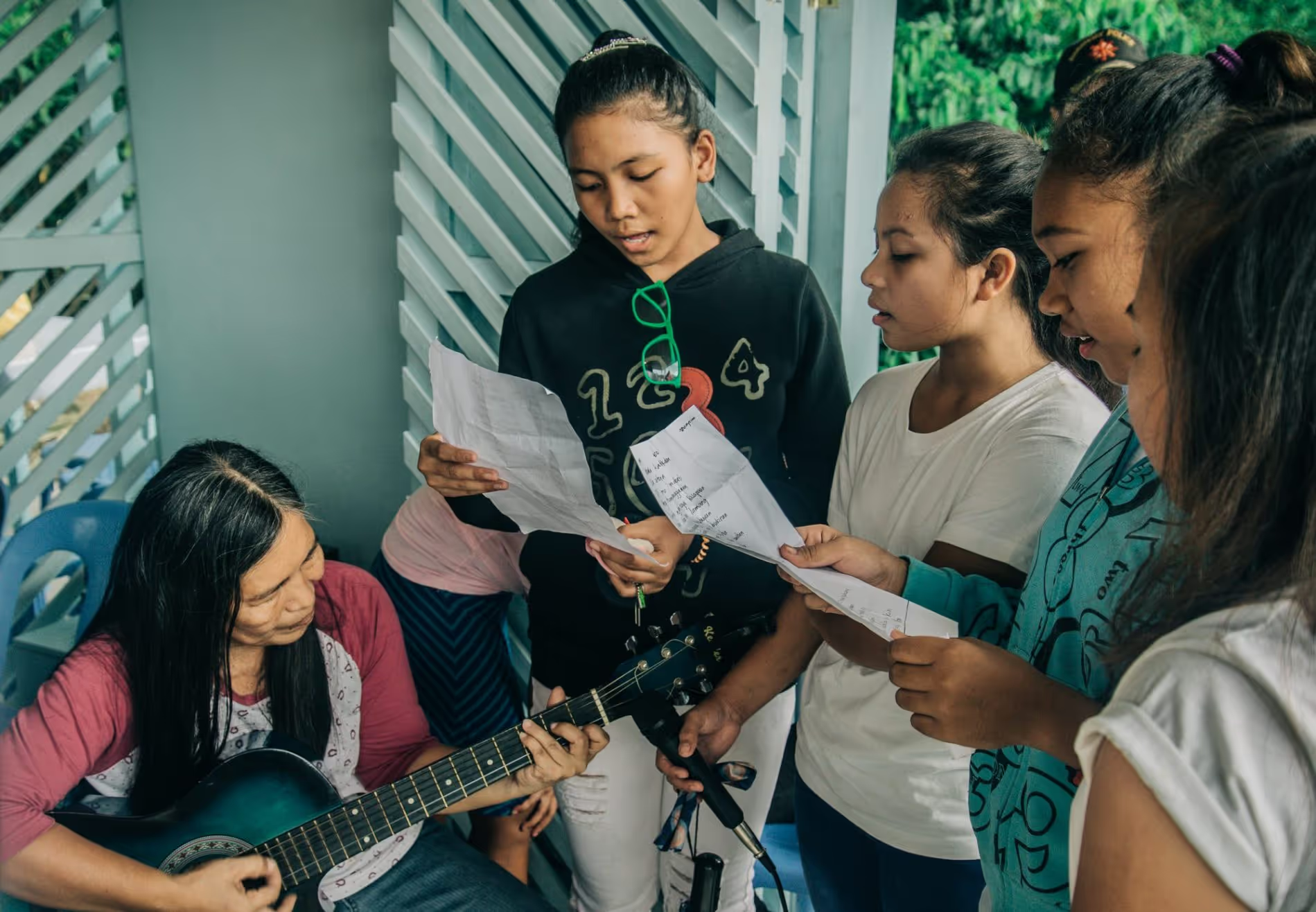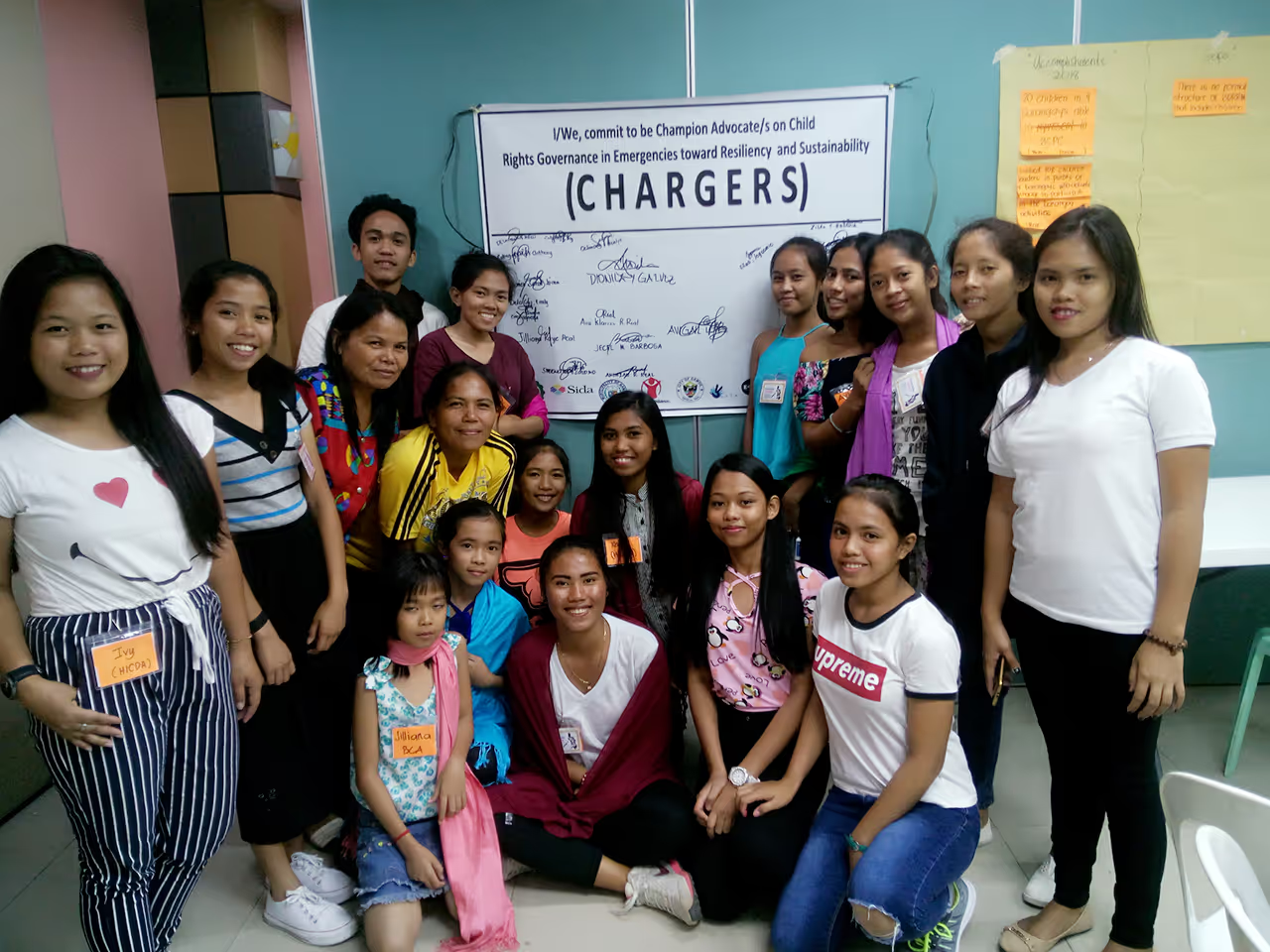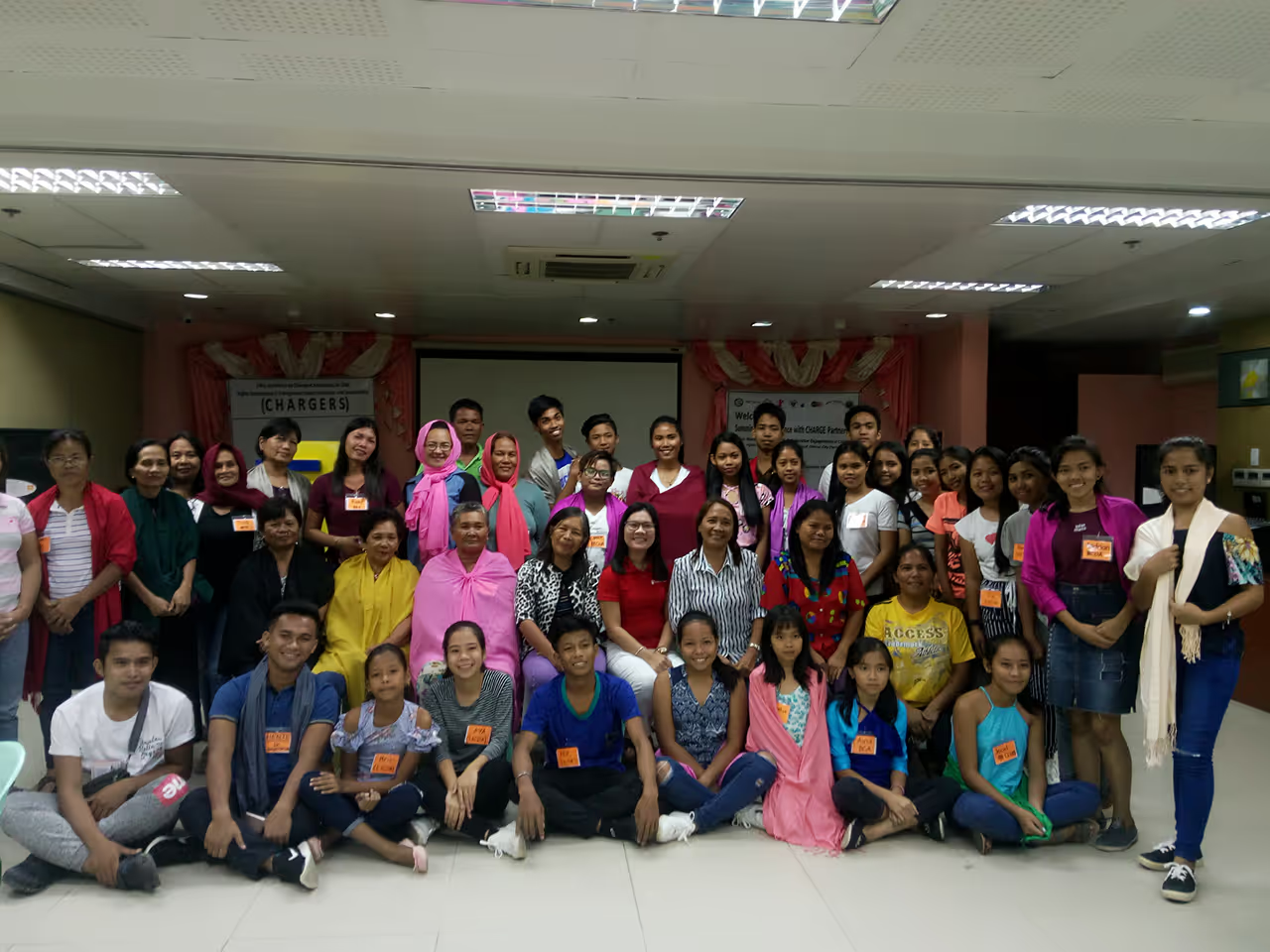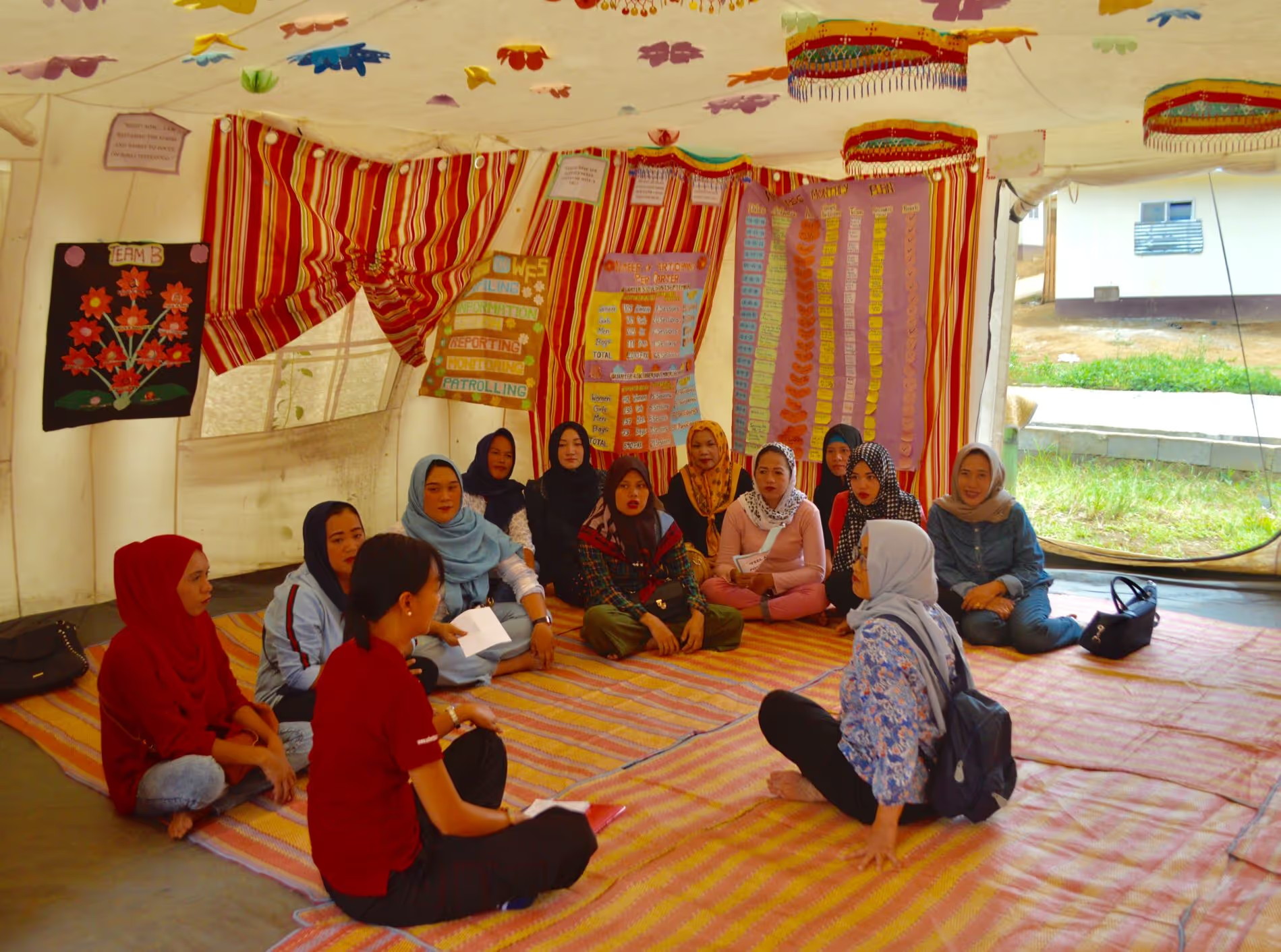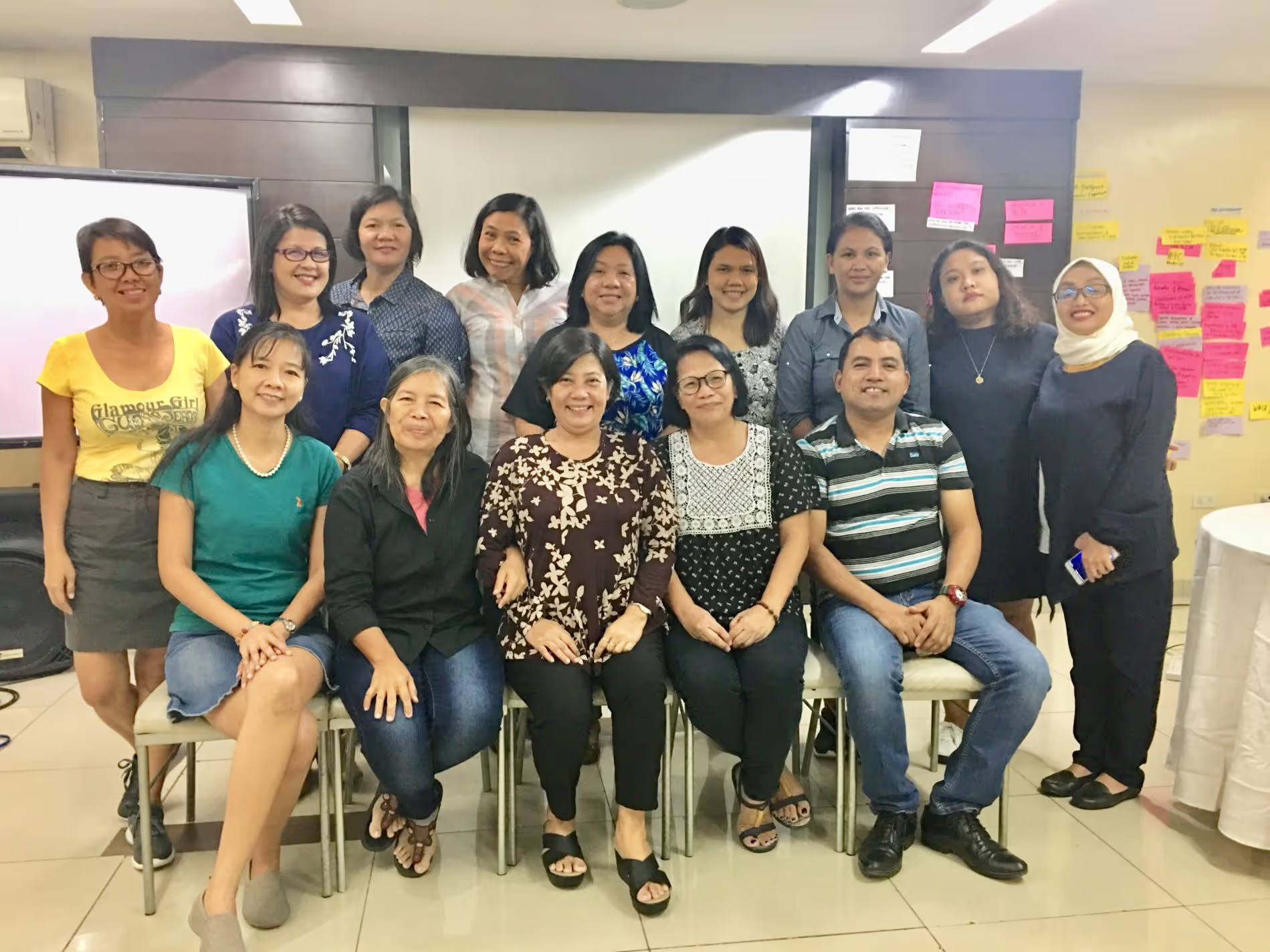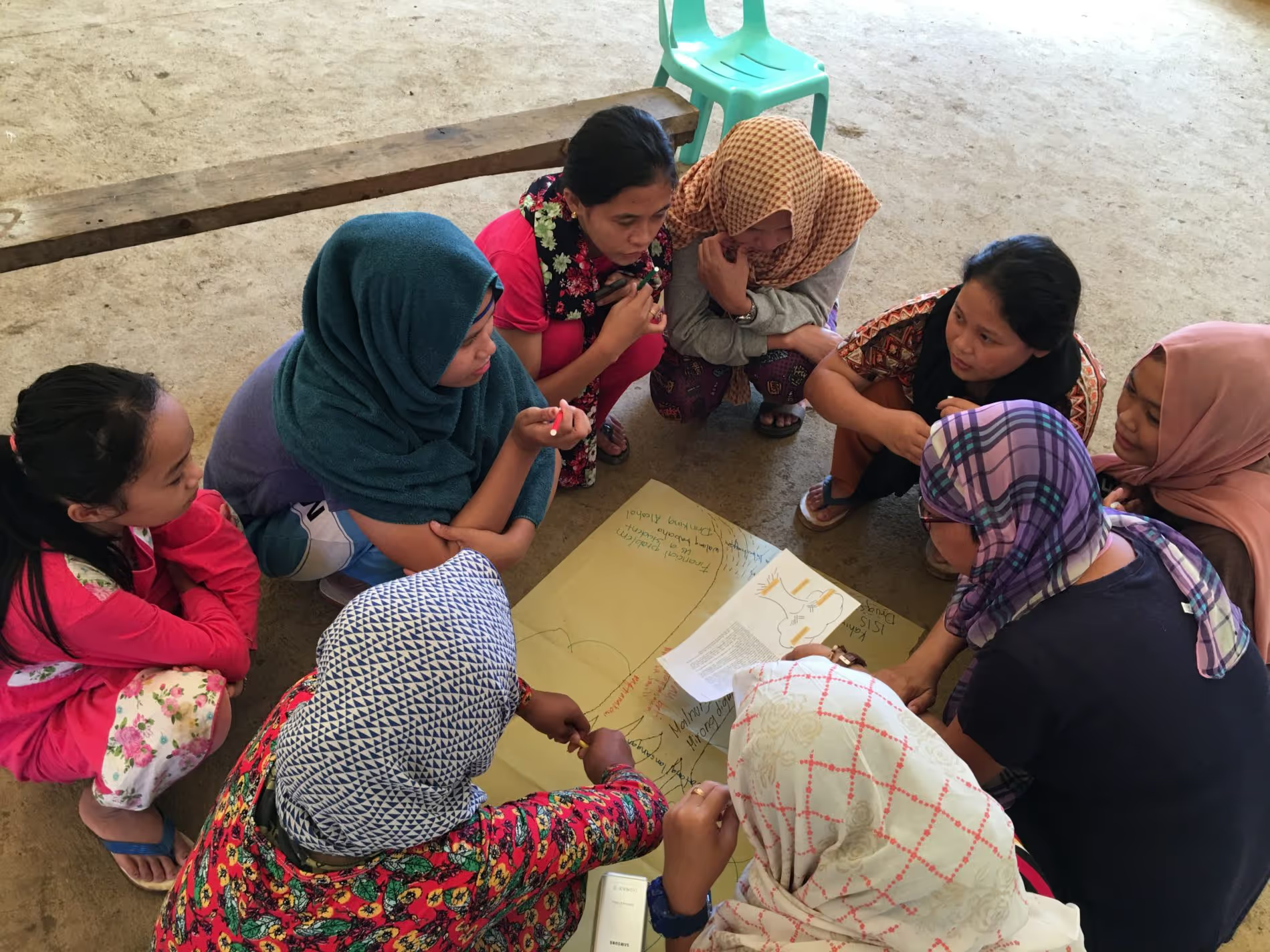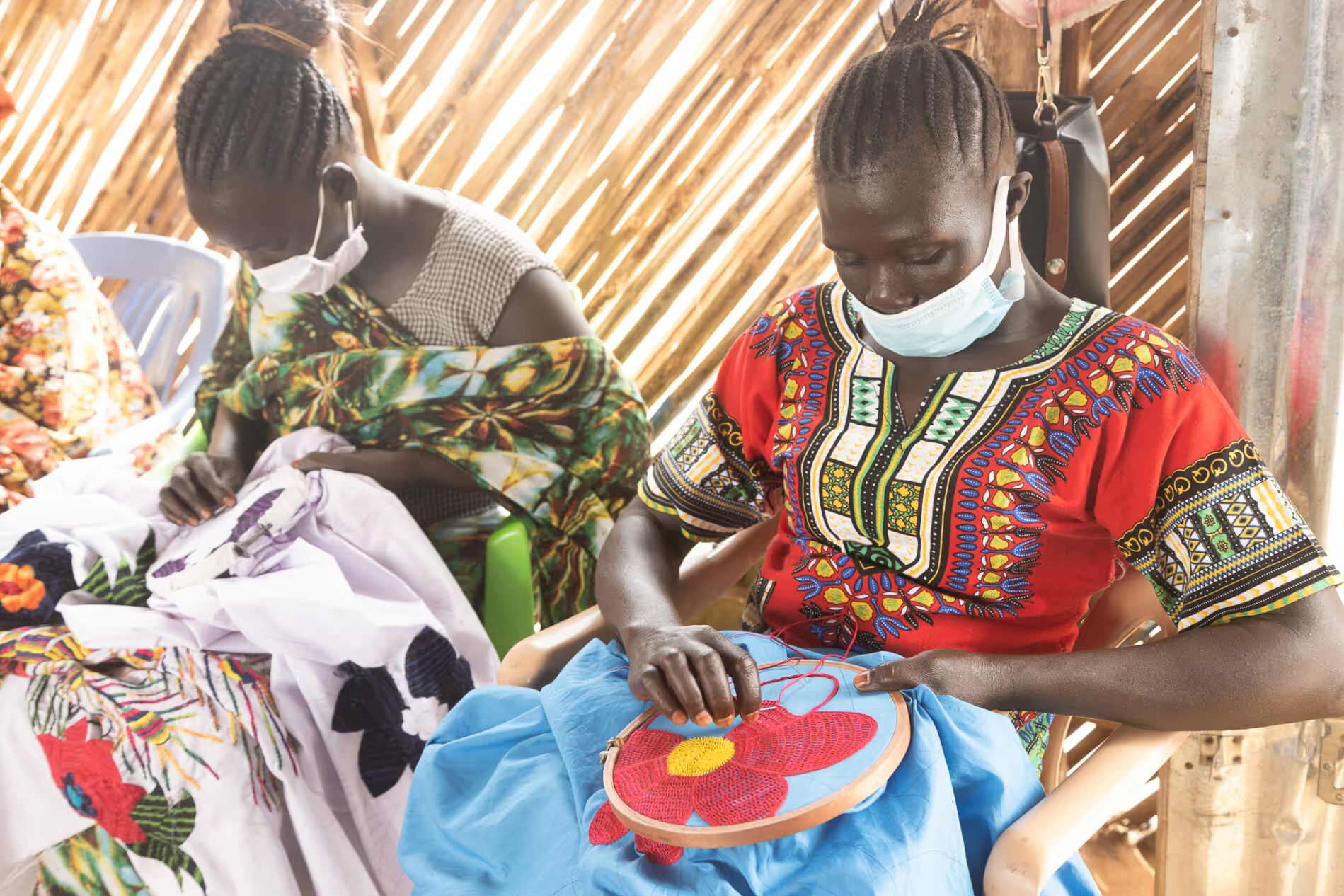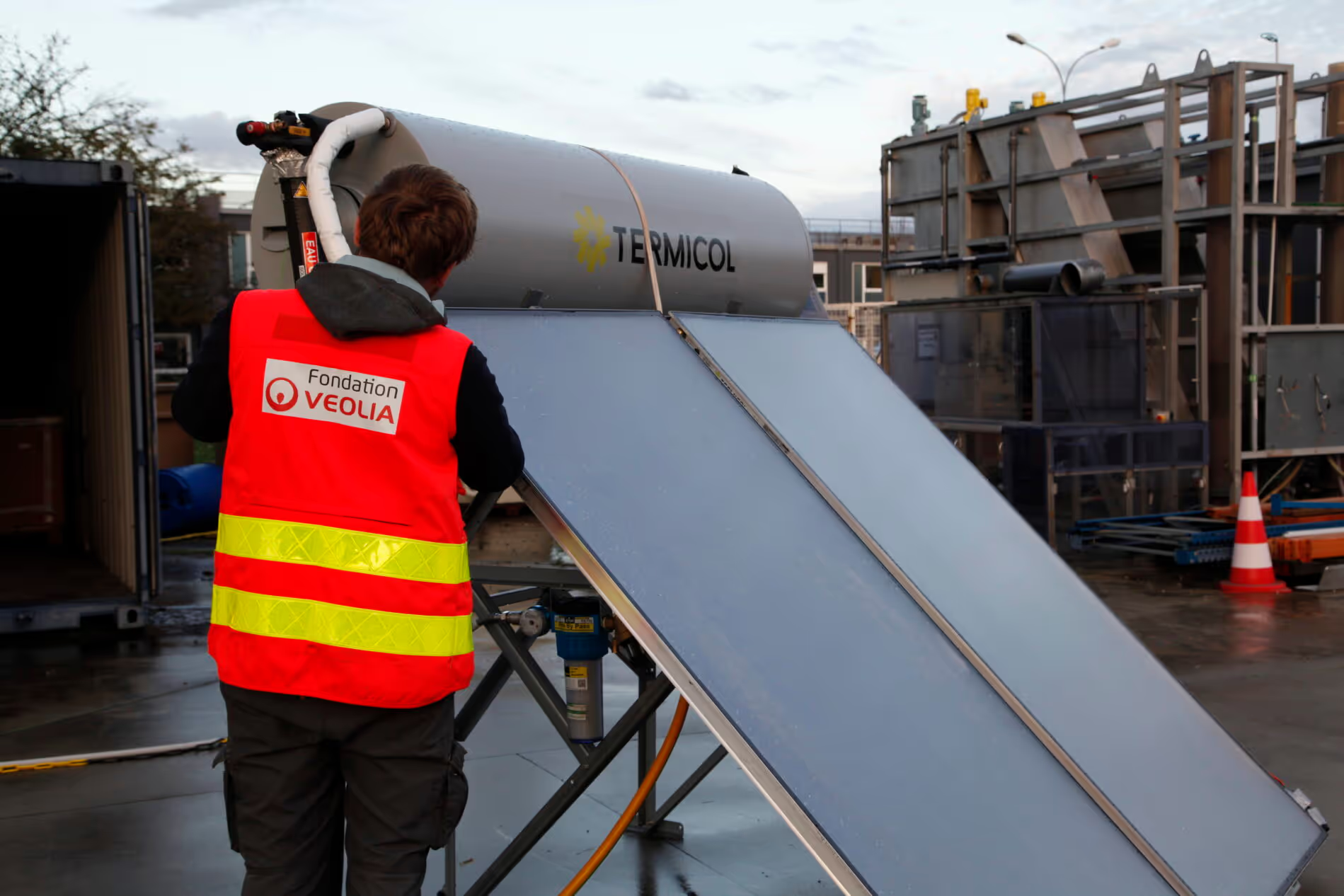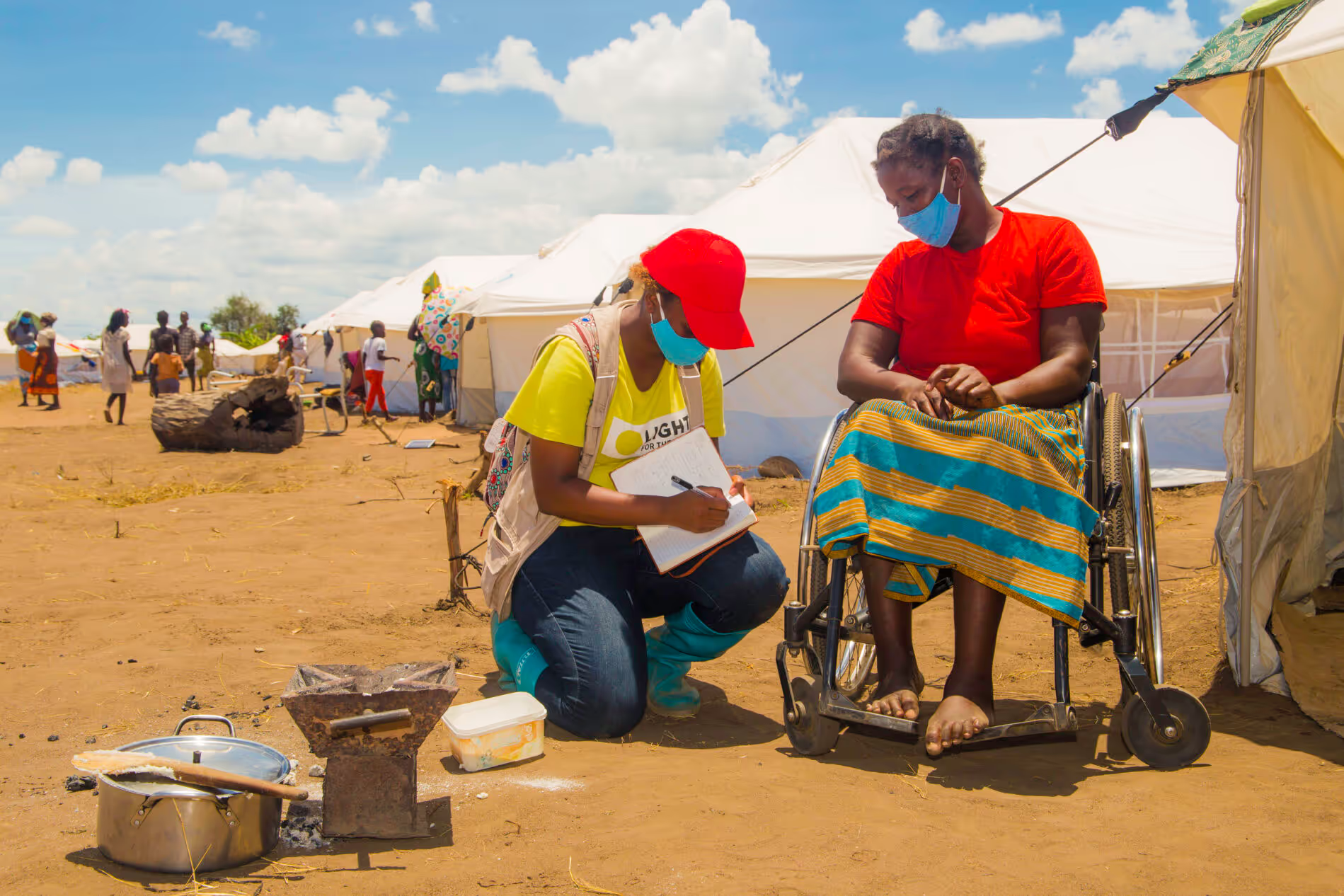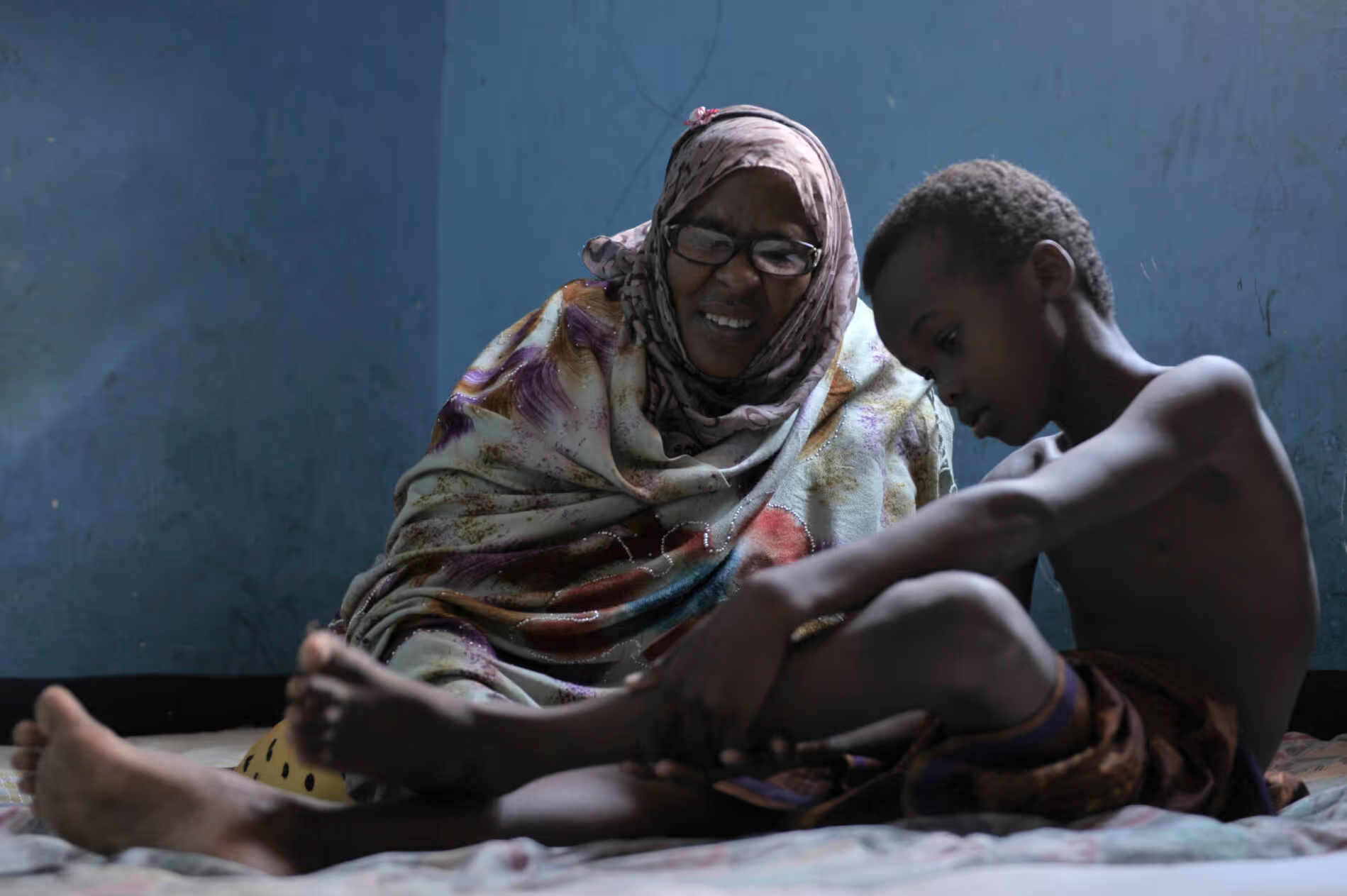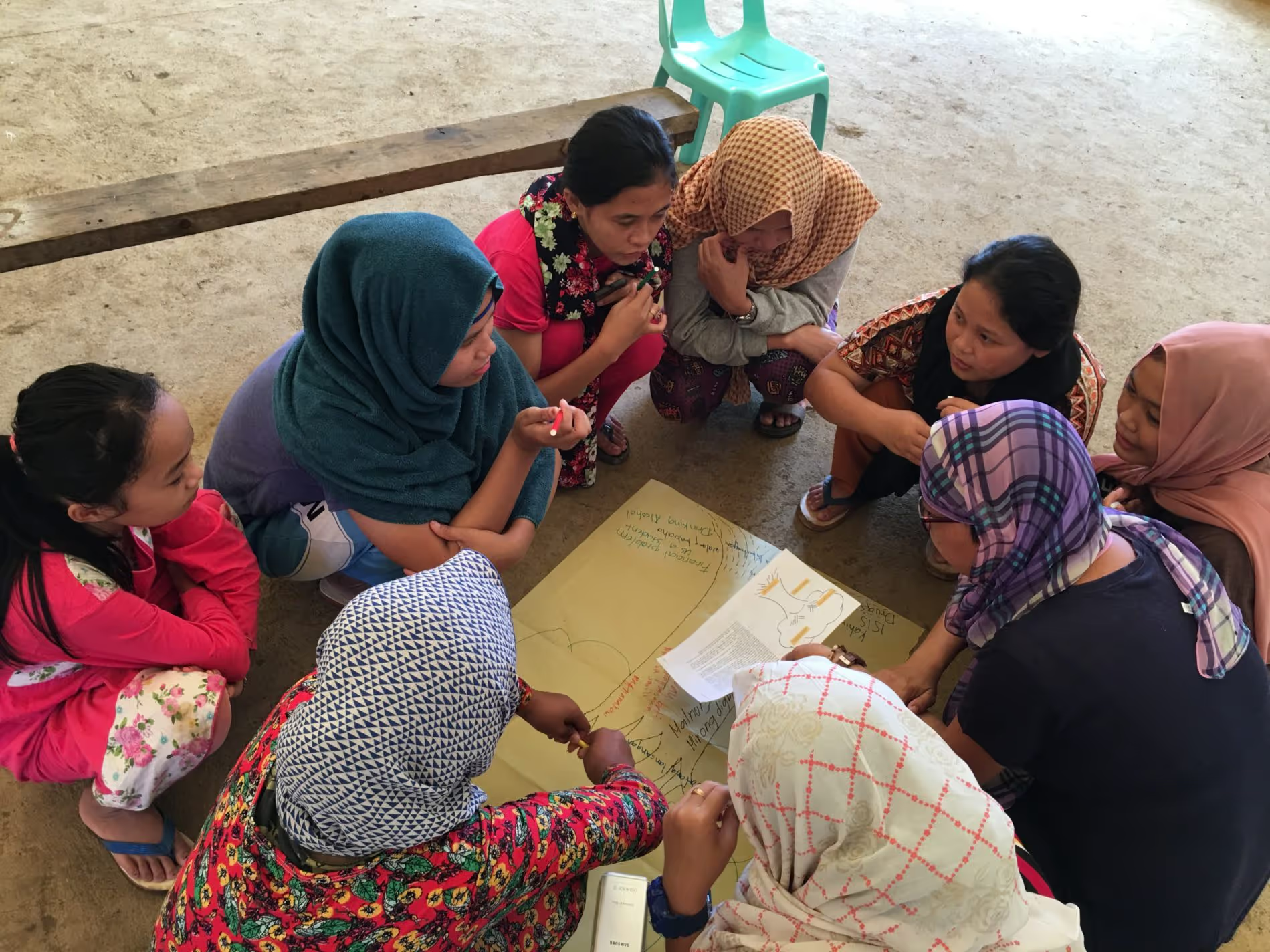Creative tools for capturing impact of gender-based violence in emergencies interventions
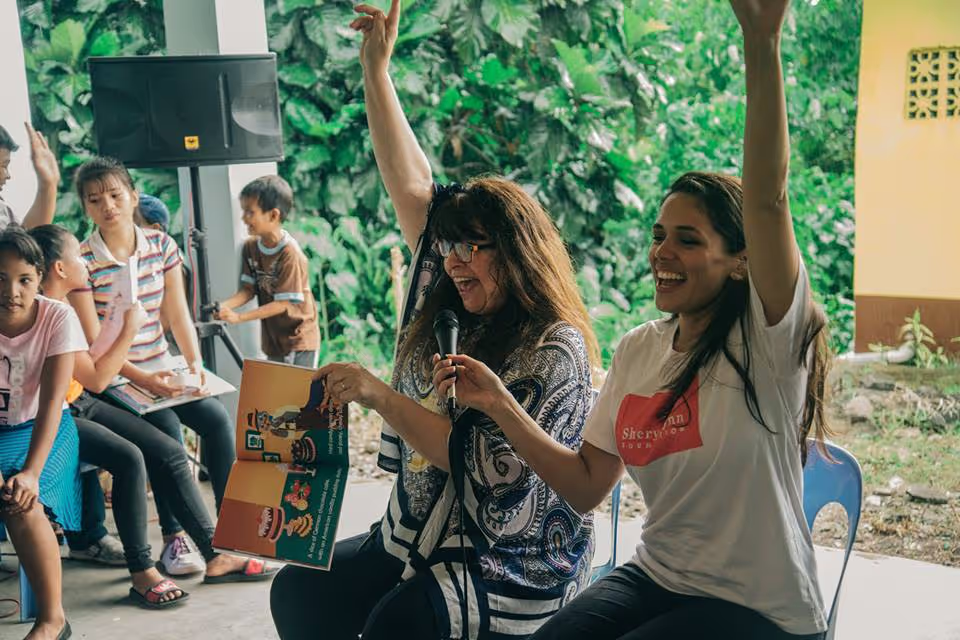
Project overview
Using innovation and human-centred design thinking in developing measurement tools, this Consortium conducted the very first impact assessment on GBV in emergency programming experiences in the Philippines – both in natural disaster and armed-conflict settings.
Countries
Philippines
Organisations
Rural Development Initiatives in the Islands of Leyte Inc.
Partners
SCHERZ Indigenous Creations, ULIKID Parents Organisation, Inc., Northern Samar Children’s Ministries Network, TUKLAS Innovation Labs - Visayas
Area of funding
Humanitarian Innovation
Grant amount
58935
Start date
03
January
2019
End date
03
September
2019
Project length (in months)
8.1
Funding calls
No items found.
Topics
User-centred design
Status
Closed
Project solution
This project offers [specific solution or intervention] to tackle [challenge]. By implementing [strategies, tools, or innovations], the project aims to achieve [desired outcomes]. The approach is designed to [specific actions or methods] to bring about meaningful change in [community, region, or issue area].
Expected outcomes
This project aims to achieve [specific outcomes], such as [measurable results, improvements, or changes]. The expected impact includes [benefits to the target community, advancements in research or innovation, or long-term effects]. By the end of the project, we anticipate [specific changes or milestones] that will contribute to [broader goals or objectives].
No items found.
WHAT IS THE HUMANITARIAN NEED?
Gender-based violence in emergencies (GBViE) programming in the Philippines has been guided by international guidelines and standards as well as by national policy and legal frameworks on gender and development, child protection and disaster risk reduction and management.
Though several preventive and life-saving interventions have been put in place, there is still a need to gather empirical data on how GBV has been prevented and responded to effectively.
In improving its GBViE programming, it is important that organisations engage crises-affected individuals and communities - not just as beneficiaries but also as co-innovators in finding solutions that are inclusive and empowering.
It can guide the pathway for a more harmonised approach on GBV management, coordination, mainstreaming to other clusters, and monitoring and evaluation.
WHAT IS THE INNOVATIVE SOLUTION?
This innovation project is in the problem recognition phase, and therefore aimed to provide a deeper understanding of localised GBV M&;E approaches.
This GBV consortium, composed of five organisations from the Visayas Region of the Philippines, was formed to conduct the very first study on the impact of GBViE programming in partnership with local communities.
Creative measurement tools were co-designed by key humanitarian actors from the government agencies, UN, INGOs and local government units who had hands-on experiences on GBViE programming.
The initial tools developed were field tested, refined and validated while documenting the innovation process, its challenges and lessons learned. Members from crisis affected communities acted as co-innovators in defining better and stronger GBV preventive and response measures.
The generation of evidence-based data on the impact of GBV in emergencies programming is set to inform the government, humanitarian clusters and local actors on how to better approach GBV prevention and response in terms of policies, allocation of resources, standardising, coordination works and innovation.
WHAT ARE THE EXPECTED OUTCOMES?
The project provided new insights, greater understanding and creative opportunities to better develop minimum and comprehensive GBViE programming in humanitarian situations.
It will guide the pathway for a more harmonised approach on GBViE management, coordination, mainstreaming to other clusters, and monitoring and evaluation.
By capturing the impact of GBV prevention and response measures from the previous and on-going humanitarian response, future interventions can better engage the local communities on strengthening existing community-based protection mechanisms. Through this, the research will help to increase local capacities, resiliency and sustainability.
As a result, knowledge, attitudes and behaviours challenge existing gender norms, traditional practices and inequalities that contribute to the prevalence of gender-based violence even in times of emergencies.
Read the report in the Tools and Research section below.
No items found.
Project delivery & updates
Stay up to date with the latest developments from this project. Here, you will find details on what has been delivered, resources created, and regular updates as the project progresses. Access key documents, reports, and other materials to see how the project is making an impact.
No resources/updates have been published yet for this project. Sign up for our newsletter to stay informed about upcoming publications and updates!
Join our Newsletter
Resources
Capturing the Impact of Gender-based Violence Interventions in the Philippine Emergency Context
Report
LEARN MORE